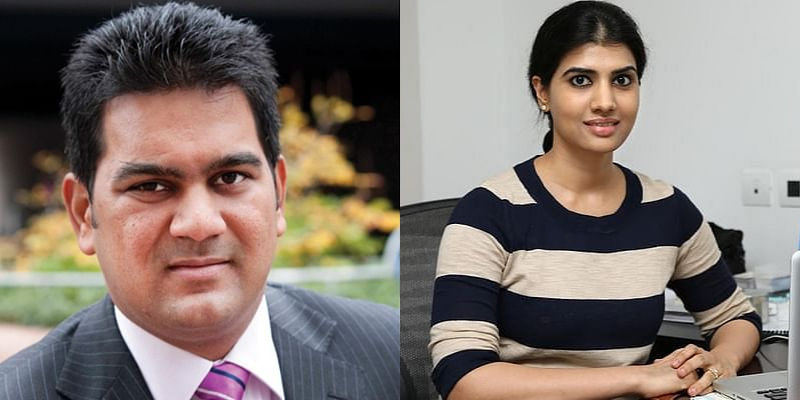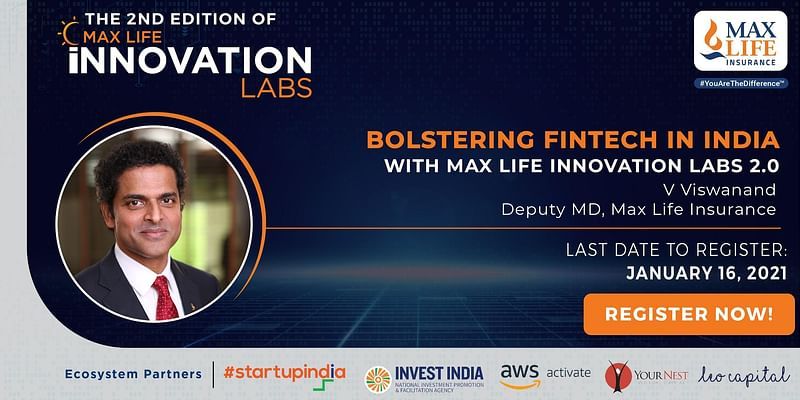These next-gen entrepreneurs are carrying forward their family business legacy: top SMBStories of the week
This week, SMBStory featured stories of Indian brands that are now being led by next-gen entrepreneurs who are keeping their business legacy firm.
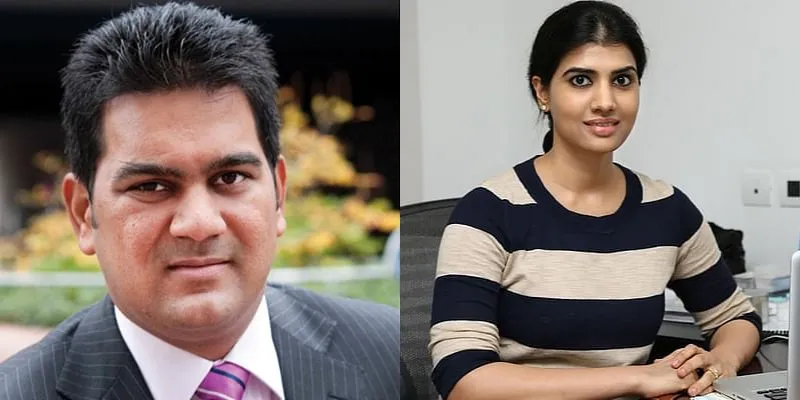
For any business to flourish and prosper, it needs a team of like-minded people who can foresee the business goals that align with the goals of the founder.
This week, SMBStory featured stories of Indian brands that are now led by next-gen entrepreneurs.
S. Chand Group
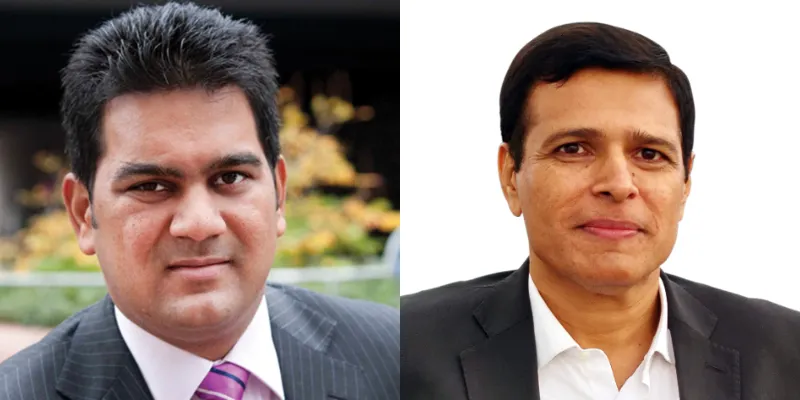
Himanshu Gupta (L) Managing Director and Vinay Sharma (R), Head of Digital and Services at S Chand Group
This made-in-India brand dates back to pre-independent India. Shyam Lal Gupta started a publishing house, S Chand, in 1939 to publish books written by Indian authors and make them available to students at an affordable price, thus reducing the penetration of foreign books in the market. The first textbook to be published by S Chand was ‘Textbook of Physical Chemistry’ by Prof Bahl & Tuli.
This made-in-India brand is unique because it internalises the spirit of a homegrown brand, unlike many others. It was established to give voice to Indian authors and academicians. In 1960, S Chand established its own printing press. Today, the group is clocking a turnover of Rs 800 crore and is led by Himanshu Gupta, the grandson of Shyam Lal Gupta.
Himanshu joined the company in 2000. The traditional business group publishes more than 50 million books annually at its factory in Okhla. The group is affiliated to over 40,000 schools (both CBSE and ICSE boards) and reaches out to almost 30 million students. In addition, the company has 3,500 employees. The books printed by S Chand are exported to 15 countries across Asia, the Middle-East, and Africa.
Himanshu, the third-generation entrepreneur believes that the group has undergone a major digital transformation over the years owing to the changing times and advancements such as internet boom, the democratisation of internet and the increasing needs of people in the online space.
Aparna Enterprises

Aparna Reddy, Second-generation entrepreneur, Aparna Enterprises
In the 1980s, S.S. Reddy was working with a tile manufacturing company in Hubballi, Karnataka, when he found his calling in entrepreneurship. However, with limited funds and uncertainty on what business to start, he chose the business he had knowledge about – manufacturing tiles.
Reddy started as a tile trader in Hyderabad where he bought tiles from manufacturers from across India to trade in Hyderabad and later expanded the business to entire Andhra Pradesh giving birth to in 1990.
In an interaction with SMBStory, Aparna Reddy, the second-generation entrepreneur, who manages the business operations says,
“Before founding the company, my father worked with a tiles manufacturing company for a period of three years. He had an idea of the tiles and hence decided to take the plunge into the tile business.”
Reddy started his entrepreneurial journey with tile manufacturing in 1990 after which he ventured into construction through ACEPL. In 2006, the company set up a manufacturing plant in Hyderabad to manufacture Ready-Mix Concrete (RMC), and later in 2008, the company diversified into manufacturing Unplasticised Polyvinyl Chloride (uPVC), or rigid PVC, which is extensively used in the building and construction industry.
Today, the company has around 19 manufacturing plants located across Hyderabad, Visakhapatnam, and Bengaluru, among other cities, and records a turnover of Rs 863 crore.
Other top stories of the week
Nona Lifestyle
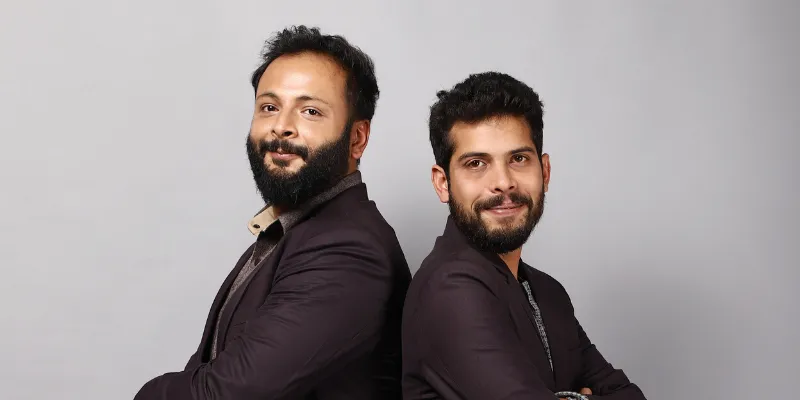
Nona Lifestyle founders Hari Mishra (left) and Ankit Rajput (right)
It had been a month since Hari Mishra and Ankit Rajput started living with their friends, sleeping on floors, and eating one meal a day.
Hari and Ankit’s business had run out of money. The entrepreneurs had started a bootstrapped custom clothing brand and design studio Poptailor in Mumbai in 2016.
But they exhausted their funds, amounting to Rs 25 lakh, in less than a year. They struggled to convert customers over to their clothing design studio due to lengthy purchase cycles. Two out of four partners exited the business, leaving Hari and Ankit to deal with its remains. Hari and Ankit packed their bags and left the city of dreams. Making their way towards Delhi, they hoped for a fresh start.
During this difficult phase, Hari and Ankit noticed startups, hotels, and large corporations face challenges in sourcing uniforms and other items of clothing for their employees and runners.
“Besides local traders and manufacturers, there was no organised entity serving this need for businesses. This provided an opportunity for us to become an organised player,” Hari, 32, an IIM-Ahmedabad graduate, tells SMBStory in an exclusive interview.
Hari and Ankit spent their days visiting textile markets, meeting suppliers for sourcing high-quality materials, and hunting for customers. To save money, they did all the work such as accounting, quality inspection, warehousing, loading and unloading, and transportation.
Their first breakthrough came when placed an order for 70 t-shirts.
Paree
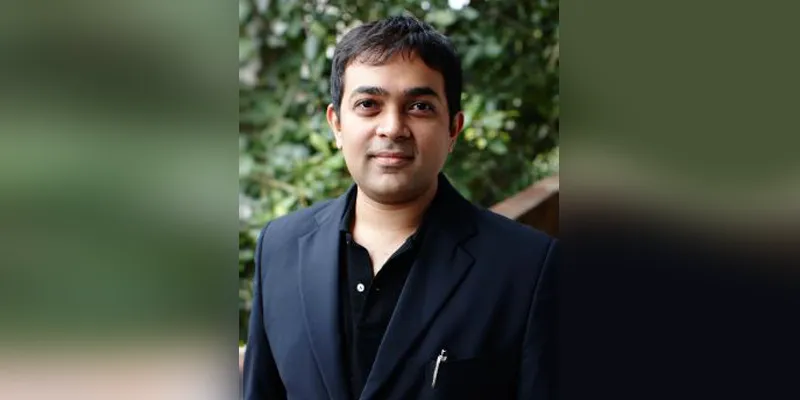
Sahil Dharia, Founder and Chief Executive, Soothe Healthcare Pvt. Ltd.
Sahil Dharia’s career began at the Wall Street with investment banking firm UBS Group. He then became the country head for financial and media conglomerate Reuters' India operations. At 31, he took the plunge into entrepreneurship.
Sahil briefly taught at Symbiosis Institute of Business Management before landing in the feminine hygiene space, a reality which is a far cry from the fancy towers of Wall Street.
In 2012, Sahil launched Pvt. Ltd. and under it started a subsidiary called Paree Sanitary Napkins in 2015 to manufacture sanitary pads.
The first challenge in setting up the business was the mindset barrier. Initially, no one believed in Sahil’s idea. He was quitting a high-paying job to start a sanitary napkin business. People told him that only 12 percent of the women in India use sanitary pads and there is no market or future.
After a lot of convincing, his family, friends, and peers realised that he was serious about the idea. Sahil invested Rs 8 crore, a mix of debt and his own savings, as initial capital.
The second challenge was to set up the manufacturing unit which took almost two years and several approvals. Today, Paree has two fully-automated and high capacity manufacturing units in Greater Noida.
Edited by Javed Gaihlot





